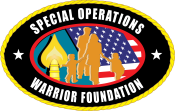
It has been nearly 20 years since nineteen hijackers weaponized multiple airplanes in unprecedented terrorist attacks on U.S. soil. As the calendar moves us closer to the 20th anniversary of September 11, 2001, we will solemnly reflect on the horrific events of that day — the lives that were lost, the families that were shattered, and the heroes who responded with fearless resolve, providing hope and some measure of comfort on a day of overwhelming despair.
While we have been successful to date in preventing additional catastrophic international acts of terror within our borders, the upcoming anniversary offers an opportunity for policymakers, thought leaders, and all involved in protecting and defending the United States to undertake a dispassionate, critical assessment of how the nation has responded over the past two decades. Did we establish the right institutions, security architectures, and legal authorities to combat terrorist threats we faced in the wake of 9/11, confront today, and will encounter in the future? Have we continued to invest appropriately in our intelligence capabilities and ensured robust, sustainable resourcing for the larger counterterrorism enterprise, especially given competing national security imperatives? What lessons have we learned in striving to blunt the ideological foundations of violent extremism and address the underlying conditions that terrorists have long turned to their advantage — including political conflict, disenfranchisement, and deprivation — and how best to evaluate our ability to achieve durable outcomes against such objectives?
As the nation collectively endeavors to answer these and many other questions that stem from our policy and operational successes and failures over 20 years, reflection inevitably will turn to our Special Operations Forces, or SOF. The 9/11 era accelerated the evolution of special operations, and SOF have proven to be history’s most combat-capable and potent counterterrorism force. In helping to bring the architects of 9/11 to justice, degrade al-Qaida and the Islamic State of Iraq and Syria (ISIS), and counter a range of other terrorist threats to U.S. interests across the globe, SOF have consistently demonstrated their strategic value to the nation.[1] The men and women of SOF — and, by extension, their families — should be lauded for their pivotal contributions in preventing and responding to acts of terror, even as they may shy from public accolades.
The forthcoming 9/11 anniversary will be an opportune time for policymakers and national security professionals to re-assess the lessons from SOF’s experiences over the past two decades. Such evaluation — separate from the SOF community’s own internal efforts — is important for at least two reasons. First, the strategic value of special operations has always extended well beyond counterterrorism. SOF are currently tailoring their core capabilities to help respond to the challenges presented by state adversaries and competitors such as China and Russia, even as their full spectrum capabilities are being called upon to help address an array of potentially catastrophic threats that stem from networked non-state actors who operate in unorthodox battlespaces. Learning and applying lessons from the 9/11 era will help generate more options for policymakers who will continue to turn to SOF to help the nation buy down risk in today’s complex threat environment.
Second, SOF have traditionally served deep-rooted roles as agents of change. The community’s innovation in tactics and technology often permeate outside of SOF, helping to build a stronger, more proficient military. Understanding the full scope of SOF’s best practices and approaches — and how best to apply them to other instruments of national power — will help amplify our national security efforts and strategies in a resource-constrained environment.
SOF’s investments in essential partnerships have long been instructive in this regard. Building upon the community’s prior experiences in this area, U.S. SOF invested early on after 9/11 in strategic and operational relationships throughout the U.S. government and on the battlefield, and further deepened their partnerships with host nation security forces and other SOF units across the globe — helping to create networks that became force multipliers in combating terrorism. Successive presidential administrations since 9/11 similarly seized upon this networked approach, adapting it to new relationships both internationally and within our own borders to protect and defend the homeland. As noted in various National Strategies for both counterterrorism and homeland security, the nation developed a foundation of partnerships for homeland security — a foundation that comprises the federal government but also extends to include state and local entities, the private sector, and individual citizens.[2] Although our government must continue to strengthen and expand these partnerships — particularly with the technology sector — to address national security problem sets that require a whole-of-society approach to solve, the nation has cemented the centrality of partnerships in the post-9/11 period.
The essential nature of partnerships also applies to the larger Special Operations Warrior Foundation (SOWF) network. The Foundation would not exist without its donors, who serve as our indispensable partners and force multipliers in the mission to support and empower the families of our fallen special operations warriors, severely wounded operators, and now, more recently, the children of all Medal of Honor recipients. As the cornerstones of our network and reservoirs of action, our donors have enabled the Foundation to fund the post-secondary educations of more than 400 surviving children to date and are helping to ensure the Foundation’s commitments to more than 980 additional daughters and sons.
Our special operations forces will remain in policymaker demand as they continue to adapt to an ever-evolving geostrategic environment. Unfortunately, we will have more children of the fallen to support. As a Board member for the Special Operations Warrior Foundation, I am proud to collaborate with you in continuing to fulfill our mission and solemn obligations. As the daughter of the late Colonel Richard J. Malvesti, who died in a training accident 31 years ago while serving as the Director of Operations (J3) for the Joint Special Operations Command (JSOC), I — along with my sister — remain grateful for the enduring support of the Foundation and all SOWF partners.
Bio
Dr. Michele L. Malvesti, a SOWF Board member, served more than five years on the National Security Council (NSC) staff during the George W. Bush Administration, including as the Senior Director for Combating Terrorism Strategy. She briefly returned to the White House during the Obama Administration in order to co-chair the Presidential Study Review that reformed the White House organization for homeland security and counterterrorism. Today, she serves as a Managing Director with the Financial Integrity Network, helping international financial institutions and jurisdictions combat illicit finance. She also is a Visiting Professor with the University of Texas at Austin, serves on the Director’s Advisory Board for the National Counterterrorism Center (NCTC), is a Senior Advisor with the McChrystal Group, and is a member of the Editorial Board of the Army Cyber Institute’s Cyber Defense Review.
[1] Information on SOF in this essay is drawn, in part, from the author’s prior research. See To Serve the Nation: U.S. Special Operations Forces in an Era of Persistent Conflict, Center for a New American Security (CNAS), June 2010.
[2] See, for example, the 2006 National Strategy for Combating Terrorism, the 2007 National Strategy for Homeland Security, and the 2011 National Strategy for Counterterrorism, among others.


